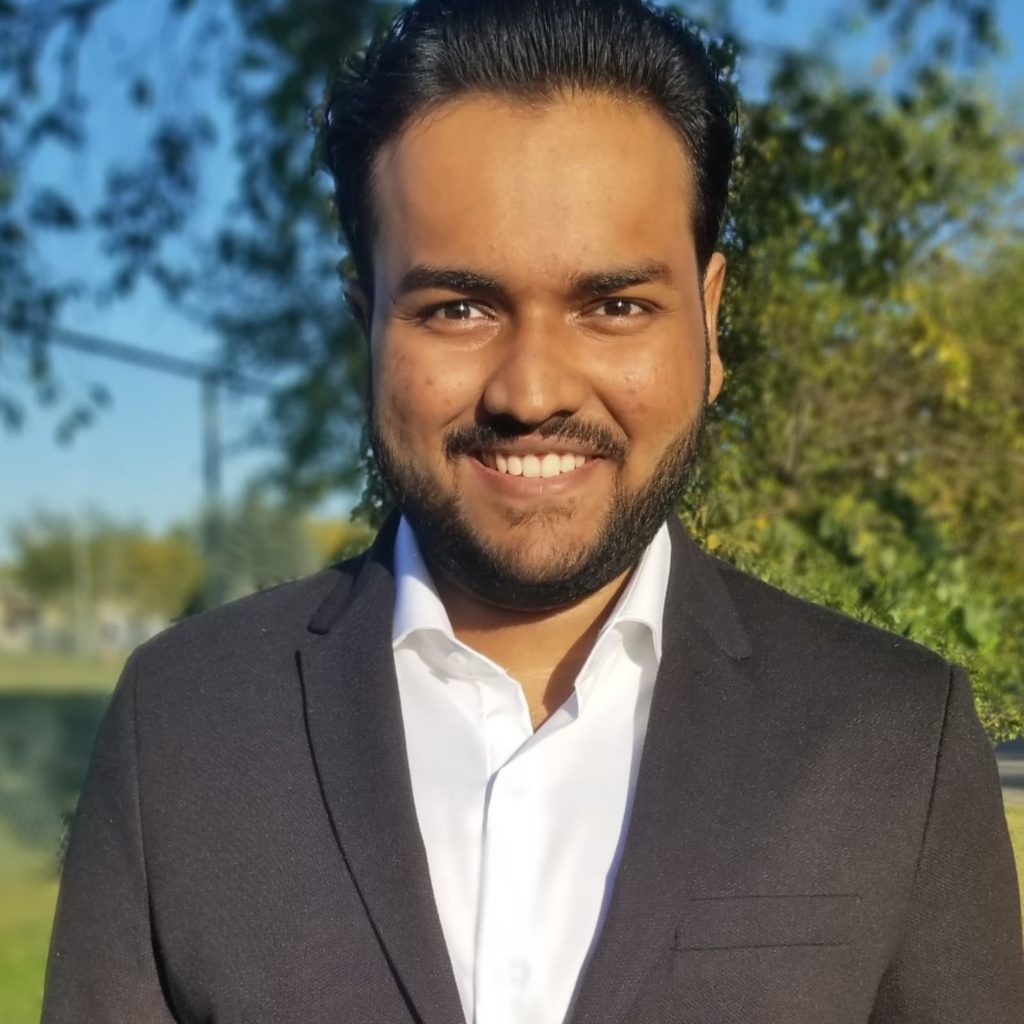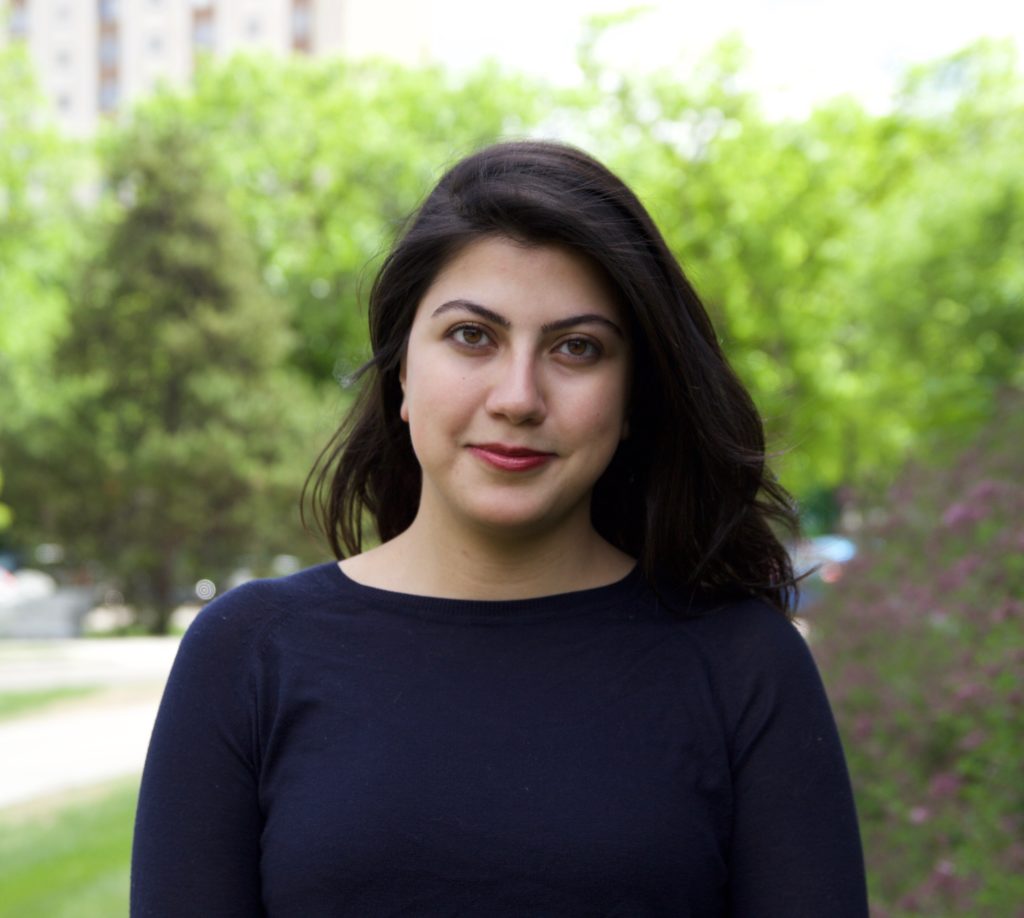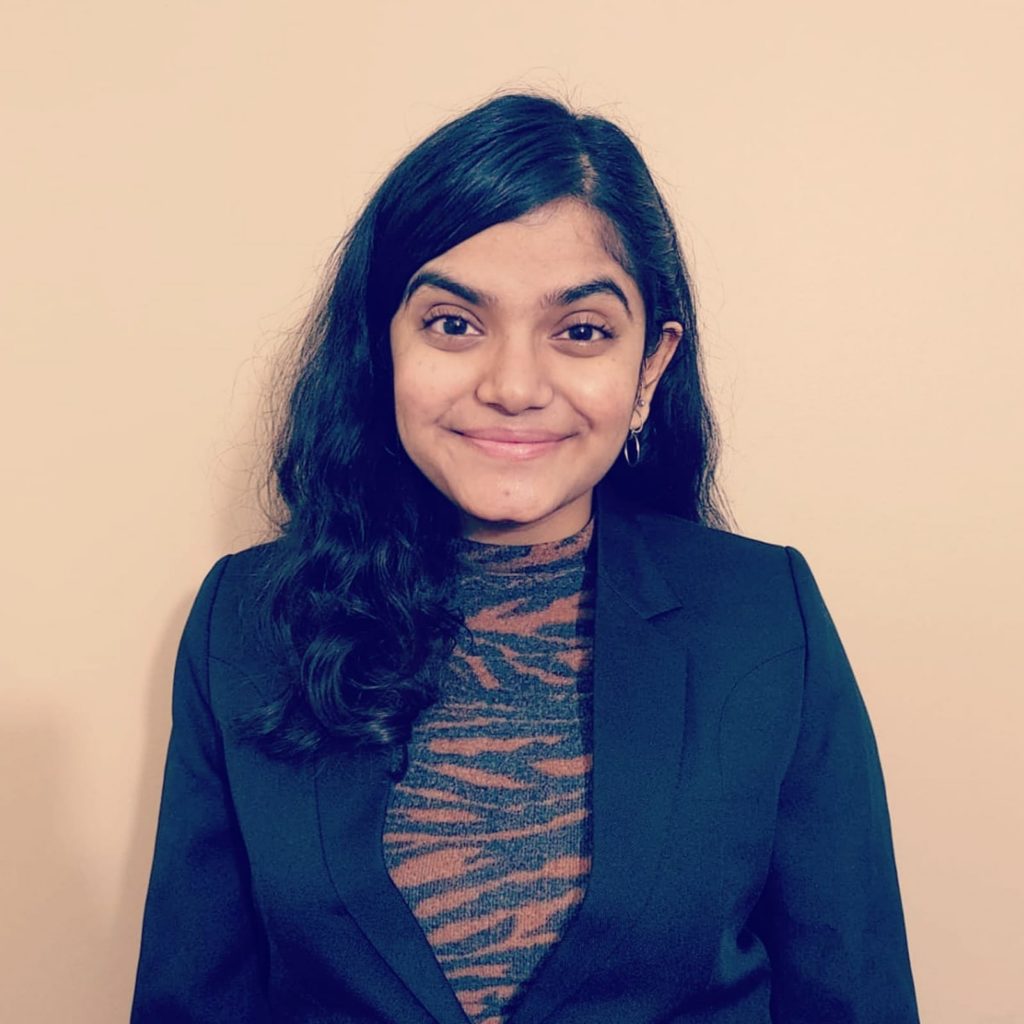SU Elections 2021 Q&A: Faculty of Science Students’ Council and GFC Candidates
Meet some of the faculty of science candidates for Students' Council and GFC.
 Shruti Shah and Vaishvi Patel
Shruti Shah and Vaishvi PatelThis article is part three of a seven-part series.
Although the election for Students’ Union executives is over, it’s now time to for students to vote for Students’ Council and General Faculties Council (GFC) representatives.
On March 17 and 18, undergraduate students will be voting for both the Students’ Council councillors and GFC representatives for their respective faculties.
Students’ Council oversees the Students’ Union in terms of its policies, financials, and mandate. It consists of 40 councillors.
GFC is the highest academic decision making body at the university. Out of its 159 members, there are around 40 undergraduate representatives.
To help students get to know the candidates, The Gateway interviewed them to learn more about how they would represent students and what issues they hope to address in these roles.
Responses have been edited for brevity and clarity.
Science Candidates
The Gateway reached out to all candidates, but only the following participated. See a full list of candidates here.
- Mohit Sinha, third-year computing science and business student —running for Students’ Council and GFC.

- Samar Barazesh, a third-year psychology student — running for Students’ Council and GFC

- Nikita Adekar, a third-year computing science and business student — running for Students’ Council and GFC.

Why are you running for Students’ Council/ GFC?
Mohit Sinha: I am running for Students’ council and GFC to represent the voice of students in the faculty of science. Currently, during the pandemic, a huge number of students are suffering financially and the mental health of students has also been affected. Workload for students at classes has increased and mental health support for students is lacking. I am running four the GFC and Students’ council to work on changes to solve these problems.
Samar Barazesh: I have been very involved on campus during my undergraduate degree, from research in different labs as a research assistant and intern, to being a member of a science competition team. I have served as an executive of multiple student groups and volunteered with Week of Welcome for three years, as well as a Science mentor with the Science Mentorship Program. All of these experiences have allowed me to meet amazing people, learn their stories, and understand their concerns and the challenges they face. Having had these interactions, it is important to advocate for students and make sure their voices are being heard. That’s why I’m re-running for Students’ Council and GFC Science councillor —to ensure student voices continue to be heard, and advocate for students’ needs from mental health and wellness initiatives, to Equity, Diversity, and Inclusion (EDI) policies, in addition to greater opportunities for research and professional development.
Nikita Adekar: For past three years in university, I have seen many candidates running for elections, making promises to the students, but for some reason most of those promises don’t come true. Instead of sitting around, I decided to take action and run for [these positions] myself. I know I am passionate about the causes and will stop at nothing to make the necessary changes in the university for students.
Can you explain your platform concisely?
Sinha: My Platform has four key points that I have developed from feedback of students.
[The first is] making tuitions affordable for students. Tuition costs at the University of Alberta have increased in the range of four to ten per cent for the past many years. Our university education costs four times what it did in 1990. Tuition fees have been increasing by thousands of dollars for both domestic and international students every year and we still do not have enough budget to support students. As per the latest annual report by the university, student tuitions accounted for around 20 per cent of the revenue. But, 22 per cent of the university revenue comes from alternative sources of revenue including sales of goods and services by university, donations and investment income. University has decided to increase the tuition by seven per cent for domestic students and four per cent for international students, a drastic increase for students, as a response to provincial budget cuts instead of working to strengthen the alternative sources of income. It’s much easier to shift the burden to the students than to actually work to get more revenue from alternative sources of income. If I am elected, I will advocate at the GFC to stop this practice of shifting the burden to students.The second point is banning online proctoring. There is emerging evidence that online proctoring exacerbates stress levels far beyond what might be normally experienced during a face-to-face exam. It has also been found that online proctoring puts students of colour, students with accessibility needs, students who parent, and low-income students at a disadvantage. Several Canadian universities including University of Calgary have banned online proctoring, but U of A still refuses to do so. If I am elected, I will advocate for a complete ban on online proctoring for all online classes.
Third, [I want to advocate for] more accessible mental health support. With the increased workload with online classes and the pandemic, many students are suffering from a mental health crisis. Currently, there are a lot of mental health programs and figuring out where to go is difficult. I will advocate for an online portal where all students will go for a monthly mental health online checkup regardless of their mental health status. In the portal, they will be able to access their mental health, automatically get connected to resources in less than a week.
Lastly, [I want to] promote sustainability. Promoting sustainability is important to protect our natural environment as well as our human and ecological health. If elected, I will work to make our campus more sustainable and students more aware about sustainability.
Barazesh: My platform has six main points of focus. The primary focus must be advocacy for students’ educational experience throughout the pandemic, both during remote delivery and as students are making the transition to in-person classes, ensuring they are receiving the necessary support to thrive and succeed. This includes continuous advocacy on remote delivery and assessment, but also consultation with students as they face this adaptive challenge.
The second point is advocating for mental health and wellness through various initiatives, ensuring greater accessibility to students. The third point is optimizing supports for survivors of sexual violence on campus. We have made positive steps towards this, including the hiring of a Sexual Violence Prevention Coordinator, but this is just the beginning. It is of utmost importance to ensure survivors are treated with dignity. The fourth point of my platform is advocating for the implementation of Equity, Diversity, and Inclusion (EDI) policies throughout our campus, to ensure the creation of an inclusive campus regardless of identity. This includes Indigenous, racial minority, international students, and LGBTQI2AS+ students. The fifth point of my platform is improving student opportunities for research and professional development, including increasing awareness of the opportunities available to students. In order for students to have a full university experience, enhancing students’ access and awareness of research and career development opportunities must be prioritized.
The last point of my platform is continuous advocacy against tuition increases and budget cuts. These can have a detrimental effect on students’ education for a number of reasons, including students having to work multiple jobs to pay for their education while class sizes increase to reduce the increase of tuition rate per student, both of which will severely impact the quality of education at the University of Alberta.
Adekar: My platform has four main parts. First, two appropriately placed reading weeks. Our University follows a semester system, which means students are evaluated throughout each semester. It is hard to take a break when you have weekly term work to do. Reading week is the only time when students can relax. However, reading week is placed almost in the middle of the semester. Most students have to choose between catching up on schoolwork or taking a break. Thus, a second reading week each semester before finals is necessary. A lot of universities give students a preparation leave before finals where they can relax and take care of themselves, so why can’t the U of A do the same? I believe starting the semester in the first week of September/January and ending it in the last week of December/April will give enough time to professors to finish their course material. University should give priority to students’ mental health as only then students will be able to succeed academically.
Second, [I want to] remove paid assignments. University tuition is already high and on top of that, professors ask students to pay for platforms like Connect and Top Hat, which cost about $30-$70 per semester. Many students are not able to afford this and many times professors do not give an alternative option. Paid assignments are not necessary and professors should design assignments such that Students don’t need to pay for them. We need to make education affordable for everyone.
The third point is focused on Equity Diversity and Inclusion (EDI). U of A has a diverse student body in terms of gender, age, religion, culture, [and other factors]. EDI should be incorporated at every level of the university. Everyone deserves to be recognized, included and given a fair chance. A lot of departments have already started their EDI committee. I want to support them and make sure that they are taking every student into consideration.
Lastly, I want to focus on needs based bursaries. Criteria for current needs-based bursaries are hard — it doesn’t evaluate every student fairly and many are left out. I want to advocate to lessen these criteria so that these bursaries are more accessible to students.
What is the biggest issue you see facing the Students’ Union and how would you want it addressed?
Sinha: Student’s Union is facing the issue of accountability and transparency. It’s hard for students to easily know what the union is doing after councillors get elected. I will set an example for other council members by putting regular updates on my social Instagram platform. I will also promote the council [on Instagram] to maintain a strong presence on the social media and post updates that will be easily accessible to students. This will also make sure that student voices are heard to the council.
Barazesh: There’s a plethora of challenges facing students, but the most critical one is remote learning, specifically delivery and assessment. Everything from the challenges for [international students] who are in a different time zone, to mental health supports, to the utilization of remote proctoring such as SEM which has impacted racialized students at disproportionate rate. These are all issues that must be addressed by the Students’ Union through continued conversation with the university’s leadership. I believe that university leadership have taken on a shortsighted approach with the mentality that the pandemic will be ending soon, therefore [they think it is] unnecessary or inefficient to tackle these issues. However, we have now had four completely remote semesters, including Spring and Summer 2020, and we will not be back to fully in-person classes at least until Winter 2022. Even then, based on the budget cuts, the university [will likely] increase class sizes as a way of addressing the cuts without increasing tuition, therefore more students will be enrolled and online classes will be normalized to a greater degree. As such, addressing these challenges will not be for a short-term problem, rather it is innovative for the future of education, especially for the U of A where we are dealing with these historic budget cuts.
Adekar: There are systemic barriers in Students’ Union that need to be removed and an EDI committee will make sure they are removed. I want to advocate to support EDI committees on campus and make sure they are accountable to students.
What is an issue you see facing the faculty of science specifically and how would you want the SU to address it?
Sinha: The biggest issue that students are facing in the faculty of science is deteriorating mental health due to increased workload in the online environment and pandemic. That is the reason I have kept making mental health more accessible as one the four key points of my platform.
Barazesh: A large focus for the faculty of science, as we enter the summer months, is ensuring the student experience will not be negatively compromised or impacted as a consequence of academic restructuring under the college model. It is important as student representatives to look out for students’ best interest and constantly consulting our constituents and relaying that information to our faculty and holding [administration] accountable. It’s equally important for the SU to reach out to students and collect data across different faculties to highlight concerns that are shared by the general student population, but specific to certain faculties and demographics.
Adekar: Faculty of science students face a lot of mental health issues due to the heavy course load they need to maintain in order to stay in their programs. In addition to quick mental health support, I want to advocate for a second reading week per semester. A second reading week can help students a lot. It will give them time to take care of their mental health as well as their academics without being in the dilemma of choosing one of them.
How will you make sure to represent the needs and concerns of your faculty to Students’ Council?
Sinha: I will set open Zoom hours for all students where they can join me and tell me their concerns. I will also post updates and regularly take questions on my platform Instagram account so that I can represent the concerns of students to the GFC and Student’s Council.
Barazesh: The one thing I always go back to when representing the needs and concerns of any group, including my faculty, is consultation. I am always available to have a conversation regarding the issues any student is experiencing. Additionally, when motions are discussed at Students’ Council or GFC, I make a point of consulting my fellow students to ensure I am representing them and their needs and concerns accurately. Therefore I will not assume I know science students’ concerns prior to consulting them.
Adekar: I plan to ask for students input every time, and to be transparent in my advocacy and council progress through my social media.
How will you ensure SU executives remain accountable?
Sinha: I will make sure to take student concerns and question SU executives work on [these concerns] to make sure SU executives stay accountable. I will question them on their promises that they were elected upon. We see a lot of promises from SU executives during elections but real action is taken by only a few. I will make sure to question the SU executives in council meetings so that they live up to their promises they were elected upon as well as address concerns that students are facing.
Barazesh: It is important to acknowledge that the decisions of SU executives will impact students, as such it is critical to make sure executives follow through with their platforms, because this is what the student body elected them on. It’s equally important to demand transparency and accountability for all of the projects and initiatives that they are working on and [executives should] share critical information with the Students’ Council in a timely manner. Finally, all of us who are involved with student governance must remember that we are representing students and their interests, therefore at every point we, especially the executives, must seek the student’s feedback, and take that into consideration for any decision-making.
Adekar: In order to make SU executives accountable, we need to be transparent with students and update them on every stage of progress, be it negative or positive.
What do you see as the largest academic issue facing students right now and how would you like GFC to address it?
Sinha: I feel two largest academic issues that students are facing are drastic hike in tuition fees and online proctoring.
Barazesh: The largest academic issue facing students right now is the budget cuts. These cuts will have a detrimental effect on students’ education, but also their quality of life to the point where many students have to work in order to pay for their education. These budgets cuts will only amplify this challenge. Furthermore, the university will have to take on different strategies to overcome these budget cuts, many of which will impact the quality of education.
Adekar: Currently, due to COVID-19, a lot of students are facing financial crisis. There will also be a seven per cent tuition hike. Thus, many students are unable to support themselves and pay for their education. More accessible need based bursaries can help these students a bit. However, the criteria are too harsh. I want to advocate to lessen these criteria so that the bursaries are more accessible.
How will you ensure the student voice is heard at GFC?
Sinha: GFC is the second highest decision making power at the university and it’s important that the student voices are heard at the GFC. As a representative for students’ at GFC, I will make sure to have my Instagram platform active throughout my time in GFC and will create opportunities for students to raise their concerns to me, which I will raise at GFC. I will also make sure to conduct regular surveys and to keep up to date with student issues through different social media and news channels so that I can raise them at GFC. I also plan hold regular open Zoom hours where students can join a Zoom call with me and discuss the problems that they are facing so that I can voice their concerns at GFC.
Barazesh: As I said earlier, when representing the needs and concerns of any group, including my faculty, my main priority is consultation. I am always available to have a conversation regarding the issues any student is experiencing. Additionally, when motions are discussed at Students’ Council or GFC, I make a point of consulting my fellow students to ensure I am representing them and their needs and concerns accurately. Therefore, I will not assume I know science students’ concerns prior to consulting them. For GFC, it’s important to discuss the motions with other student members and try to amplify the student voice. Students form a small part of GFC, therefore collaboration with other student representatives is critical when it comes to ensuring the student voice is heard at GFC.
Adekar: I plan to ask students input every time, and advocate their concerns at the committee.
What does collegial governance mean to you and why is it important for students?
Sinha: Collegial governance means participation of all faculties in the governance of the university. This also means there are fair and equal opportunities for every council participant so that all voices can be heard without any discrimination. Collegial governance makes sure all students from different faculties have their representatives in the GFC and their concerns can be addressed at the GFC.
Barazesh: When you think about the definition of “collegial,” students are a key part of defining it. Therefore, without students’ voices being heard and their needs and concerns being addressed, collegial governance does not exist. Students are a key, and perhaps the most important part, of any university and the entire university campus and community must work towards supporting students education and their needs. As to the importance of collegial governance for students, we are often not sitting at the tables where decisions are being made about our education, and that has to change because we, as students, are most directly impacted by these decisions.
Adekar: Collegial governance means to me that every council member needs to understand they are accountable and responsible for students’ voices. The concern that is brought to the committee is just not responsibility of the person who brought it, but of everyone who is the part of the council. Each council member should know that students’ welfare is a shared responsibility and they need to advocate for each concern as if it is their own. Collegial governance is important for students because in a place where every decision is made by votes of majority, the voice of just one person makes a little or no difference. Thus only a collegial governance can make sure that the action is taken against their concerns.
Fun Question 1: If you had to eat at one SUB vendors for the rest of your life, which one would you choose?
Sinha: Marco’s Famous.
Barazesh: Subway.
Adekar: Daily Grind.
Fun Question 2: What quarantine hobby have you picked up?
Sinha: I have started to cook cuisines from different countries!
Barazesh: I’ve started painting again, which is something I hadn’t done since elementary school.
Adekar: I started learning violin.




